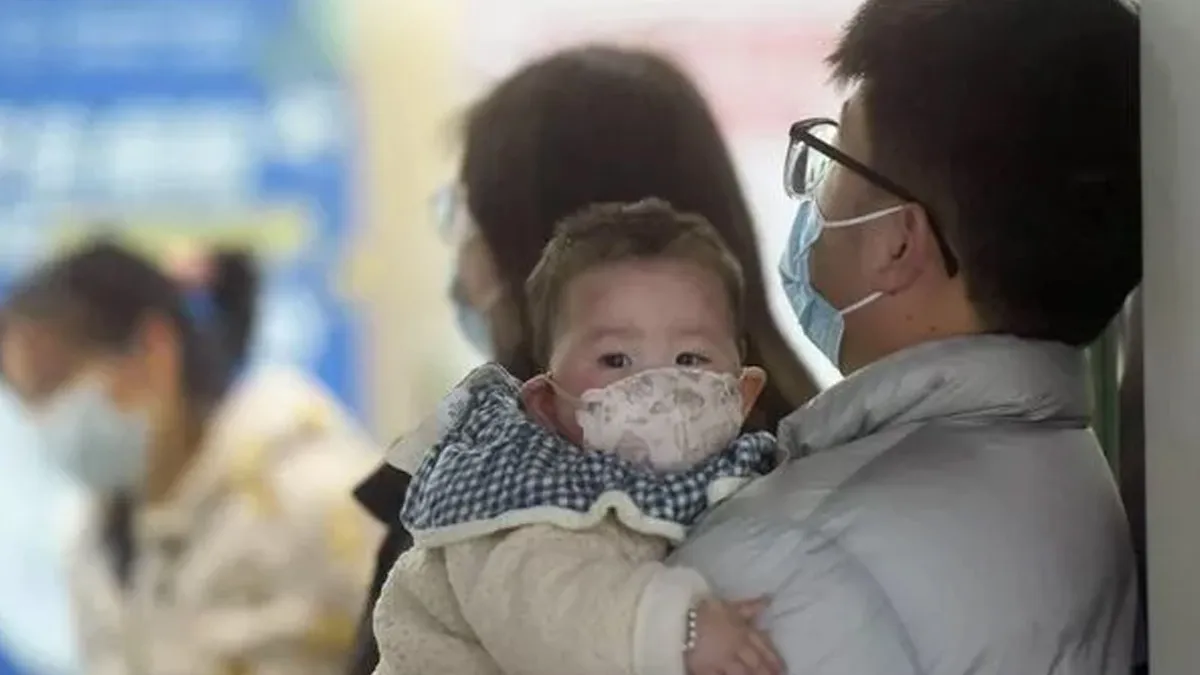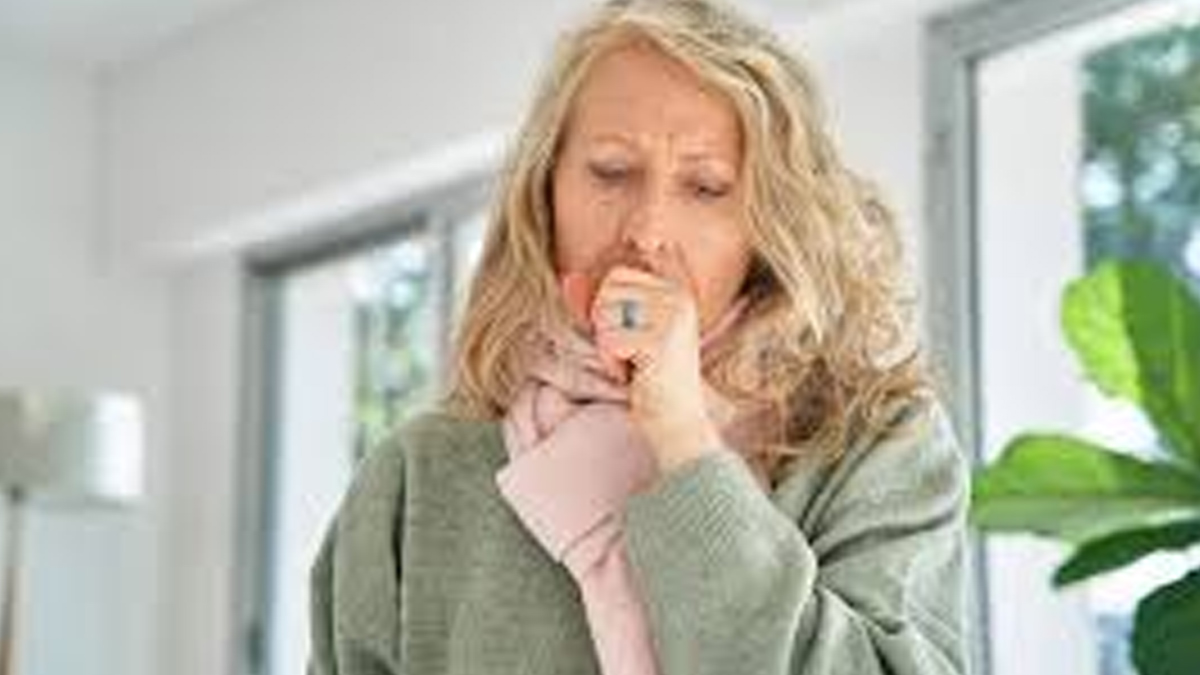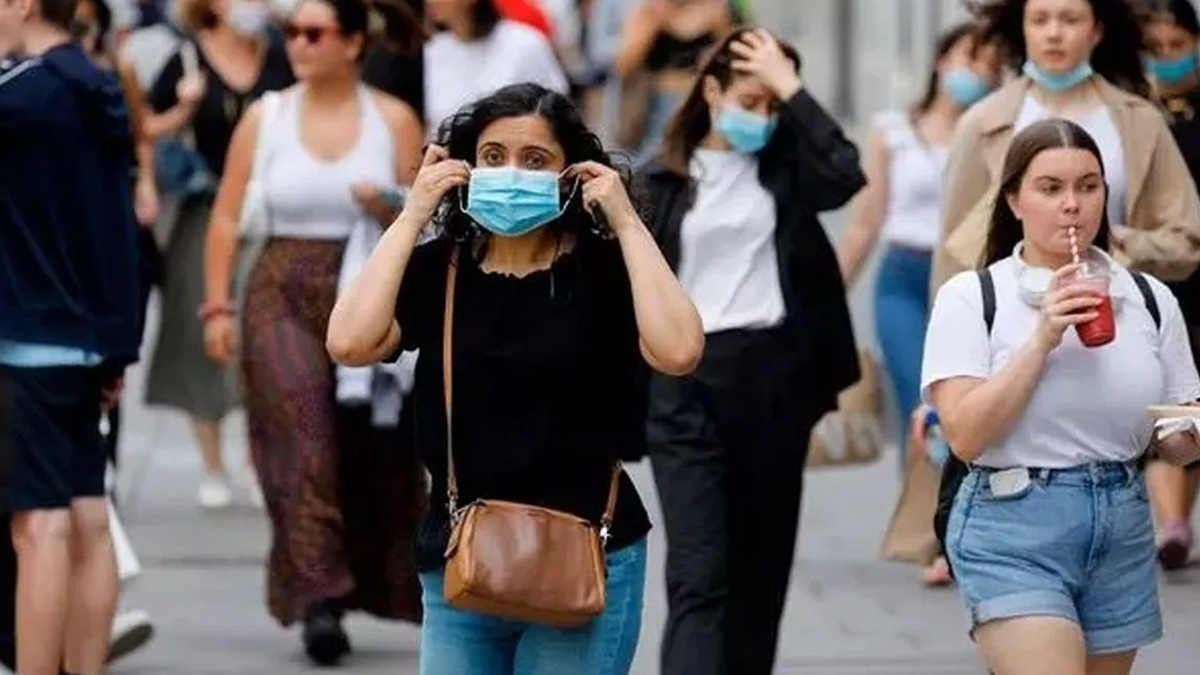
The UK is facing growing concerns over the rapid spread of human metapneumovirus (hMPV), a respiratory virus that has recently surged across the country. Health authorities have issued urgent warnings, urging people to take precautions to prevent the virus from overwhelming hospitals, particularly during the harsh winter season.
Table of Content:-
What Is hMPV and Why Is It a Concern?
Human metapneumovirus (hMPV) is a respiratory virus that primarily affects the lungs and airways. It causes symptoms similar to the common cold or flu, including fever, cough, congestion, and sore throat. However, in severe cases, particularly among infants, the elderly, and those with weakened immune systems, hMPV can lead to pneumonia or bronchitis, requiring hospitalisation.

The virus first gained widespread attention after a significant outbreak in northern China, where hospitals struggled to accommodate a surge in pediatric cases. The situation drew parallels to the early days of the COVID-19 pandemic, as crowded children’s wards and rising infections sparked global concern.
hMPV Spreads to the UK, NHS Issues Health Alerts
The UK Health Security Agency (UKHSA) has confirmed the presence of hMPV in Britain, warning that the virus is spreading rapidly. Recent data reveals a 4.9% positivity rate among tested samples, with the highest rate of 7.3% seen in individuals aged 80 and above. In response, NHS England is urging people to take preventive measures to limit the virus’s spread.
Also Read: Kansas Faces Largest Tuberculosis Outbreak in US History; CDC Refutes Claims
Amanda Pritchard, NHS England’s chief executive, has expressed deep concern over the mounting pressure on healthcare services. In a social media post, she described the current burden on frontline staff as “extremely tough,” citing an increase in emergency calls and hospital admissions due to winter illnesses, including flu and hMPV.
To ease the strain on hospitals, the NHS is expanding bed capacity and encouraging early medical intervention. “We would rather see you sooner when viruses are easier to treat than later when it is more difficult,” Pritchard emphasized.

Precautions Urged as UK Battles Surge in Cases
As the virus continues to spread, UK health officials have issued several guidelines to help curb infections. The UKHSA has advised citizens—especially the elderly and those with underlying health conditions—to take extra precautions, including:
- Wearing Masks in Crowded Places: Given that hMPV spreads through respiratory droplets, wearing masks in public spaces can help reduce transmission.
- Maintaining Good Hygiene: Regular handwashing and using hand sanitizers can minimize the risk of infection.
- Avoiding Close Contact with Sick Individuals: People experiencing symptoms should stay home to prevent spreading the virus to vulnerable groups.
- Seeking Medical Attention Early: Detecting and treating symptoms in the early stages can prevent severe complications.
Can hMPV Overwhelm the NHS?
The surge in hMPV cases comes at a time when the NHS is already under immense pressure due to winter illnesses. With flu, COVID-19, and now hMPV circulating simultaneously, hospitals are bracing for an overwhelming number of patients. The demand for ambulances has increased, and healthcare facilities are struggling to keep up with admissions.
While the situation remains concerning, health experts believe that public cooperation can help mitigate the spread of the virus. By following safety measures, the UK can prevent a full-scale healthcare crisis similar to the one experienced during the COVID-19 pandemic.
Bottomline
As hMPV cases rise across the UK, health officials continue to monitor the situation closely. The NHS and UKHSA are working together to control the spread, urging citizens to remain vigilant and proactive in safeguarding their health. The coming weeks will be critical in determining whether preventive measures can keep hospitals from becoming overwhelmed.
For now, Britons are advised to stay informed, practice good hygiene, and take necessary precautions to protect themselves and their communities from the rapidly spreading virus.
Also watch this video
How we keep this article up to date:
We work with experts and keep a close eye on the latest in health and wellness. Whenever there is a new research or helpful information, we update our articles with accurate and useful advice.
Current Version